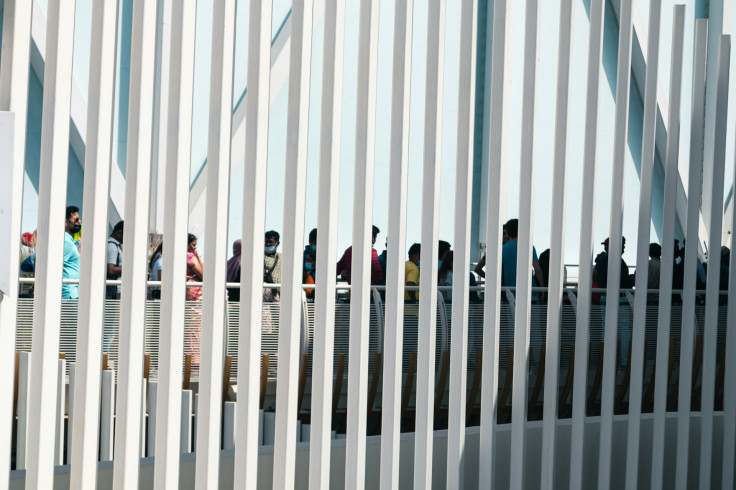Garland Motel Murder Suspects Held With Bond Because Of Immigrant Status: What It Means And Could Justice Be Served?
Two suspects also face aggravated robbery and indecent assault charges; bail amounts ranged from $1.5M to $3.25M

Three men facing capital murder charges over a fatal shooting at a motel in Garland, Texas, remain locked behind bars despite multi-million-dollar bail orders, as federal immigration enforcement measures override standard bond conditions.
All three suspects are subject to immigration detainers, which prevent their release even after bail has been formally set by the court. The case has reignited fierce debate about how immigration status intersects with due process rights and whether such detention practices fundamentally undermine the fairness of criminal proceedings.
Arrests, Charges and Surveillance Footage
On 20 June 2025, Garland police arrested Yosguar Aponte Jimenez (20), Jesus De Nazareth Bellorin‑Guzman (23), and Jose Luis Trivino‑Cruz (25) in connection with the fatal shooting of 48‑year‑old Santiago Lopez Morales, a visitor from Las Vegas. Morales was found wounded in the car park of a Motel 6 on LBJ Freeway shortly after 5 a.m., and later died in the hospital, Fox4News reported.
According to police affidavits, the suspects allegedly met Morales after a separate aggravated robbery earlier that morning, and cellphone and CCTV footage were reviewed to trace the sequence of events leading up to the shooting.
All three face capital murder charges. Bellorin-Guzman and Trivino-Cruz are also charged with aggravated robbery and indecent assault. Bail was set at $1.5 million (approximately £1.2 million) for Jimenez, $2.25 million (approx. £1.8 million) for Bellorin-Guzman, and $3.255 million (approx. £2.6 million) for Trivino-Cruz. However, they remain in custody without bail due to immigration detainers, which override any bond eligibility under current enforcement policy.

Legal Concerns Around Immigration Holds
According to the US Immigration and Customs Enforcement (ICE), an immigration detainer is a request to local or state law enforcement to notify ICE before releasing a person in custody and to hold them for up to 48 hours beyond their scheduled release so that federal immigration authorities can take them into custody under US immigration law.
Although the practice is permitted under federal guidelines, civil rights organisations have raised concerns that such holds can delay access to bail or result in extended detention without criminal conviction, according to the BBC. Legal experts also argue that detainers may conflict with constitutional protections, including the right to due process and freedom from unlawful detention, particularly when individuals are held solely based on suspected immigration status.
Strength of Evidence and Legal Risks
According to police affidavits cited in local reporting, Jimenez admitted involvement in more than 25 prior robberies, often targeting individuals perceived to be less likely to report crimes. These admissions support the prosecution's narrative in the capital murder case.
To secure a capital murder conviction in Texas, prosecutors must demonstrate intent or show that the killing occurred during the commission of another serious offence. Authorities have stated that the available evidence, including physical proof, witness statements, and admissions, presents a strong case.
Balancing Justice and Due Process
Authorities say detaining the suspects is necessary to prevent flight. Legal experts, however, warn that prolonged detention without trial may pressure defendants into plea deals or limit their access to fair representation.
The Garland case underscores the ongoing tension between immigration enforcement and criminal justice. Prosecutors must now navigate both the legal complexities of a capital trial and the need to uphold procedural fairness for all defendants, regardless of immigration status.
© Copyright IBTimes 2025. All rights reserved.




















